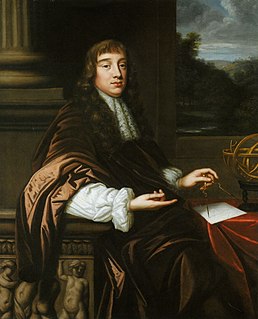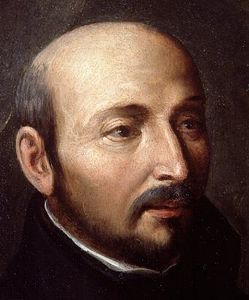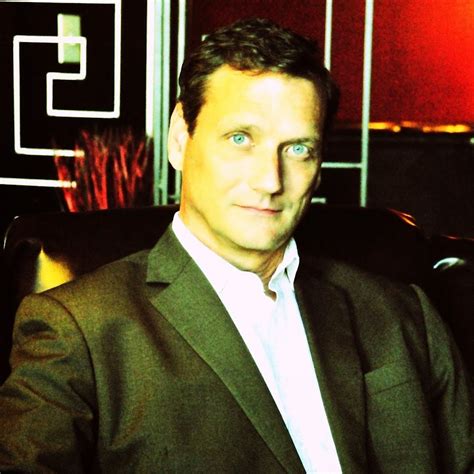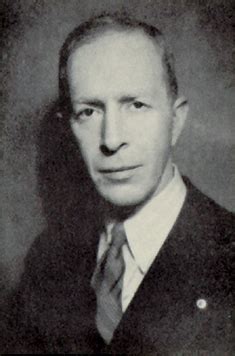A Quote by Andrew Dickson White
In an address before the "Academia," which had been organized to combat "science falsely so called," Cardinal Manning declared his abhorrence of the new view of Nature, and described it as "a brutal philosophy to wit, there is no God, and the ape is our Adam." ...These attacks from such eminent sources set the clerical fashion for several years.
Related Quotes
In Philosophy, the contemplations of man do either penetrate unto God, or are circumferred to Nature, or are reflected and reverted upon himself. Out of which several inquiries there do arise three knowledges, Divine Philosophy, Natural Philosophy, and Human Philosophy or Humanity. For all things are marked and stamped with this triple character of the power of God, the difference of Nature and the use of Man.
Science spotlights three dimensions of nature that point to God. The first is the fact that nature obeys laws. The second is the dimension of life, of intelligently organized and purpose-driven beings, which arose from matter. The third is the very existence of nature. But it is not science alone that has guided me. I have also been helped by a renewed study of the classical philosophical arguments.
That in the winter, seeing a tree stripped of its leaves, and considering that within a little time, the leaves would be renewed, and after that the flowers and fruit appear, he received a high view of the Providence and Power of GOD, which has never since been effaced from his soul. That this view had perfectly set him loose from the world, and kindled in him such a love for GOD, that he could not tell whether it had increased in above forty years that he had lived since.
There is scarce any one invention, which this nation has produced in our age, but it has some way or other been set forward by his assistance. ... He is indeed a man born for the good of mankind, and for the honour of his country. ... So I may thank God, that Dr. Wilkins was an Englishman, for wherever he had lived, there had been the chief seat of generous knowledge and true philosophy.
Science...has become identified with a philosophy known as materialism or scientific naturalism. This philosophy insists that nature is all there is, or at least the only thing about which we can have any knowledge. It follows that nature had to do its own creating, and that the means of creation must have included any role for God.
Our forefather Adam... used his freedom to turn toward what was worse and to direct his desire away from what had been permitted to what was forbidden. It was in his power 'to be united to the Lord and become one spirit with God...' (I Cor. 6:15). But Adam was deceived and chose to cut himself off voluntarily from God's happy end for him, preferring by his own free choice to be drawn down to the earth (cf. Gen. 2:17) than to become God by grace.
Just as the commander of an army pitches his camp, studies the strength and defenses of a fortress, and then attacks it on its weakest side, in like manner, the enemy of our human nature studies from all sides our theological, cardinal, and moral virtues. Wherever he finds us weakest and most in need regarding our eternal salvation, he attacks and tries to take us by storm.
Certain issues in philosophy of science (having to do with observation and the definition of a theory's empirical import) had beenmisconstrued as issues in philosophy of logic and of language. With respect to modality, I hold the exact opposite: important philosophical problems concerning language have been misconstrued as relating to the content of science and the nature of the world. This is not at all new, but is the traditional nominalist line.
The animal creation shall again gladden a new Paradise as they did when Adam and Eve called them by name, and carressed them and mingled in their society. The Bible everywhere indicates that the new earth will be a counterpart of the old before the fall, so we must conclude that lower animals who were created before man and have been his companions before and since the fall will be restored with him in the "new Creation"
What the founders of modern science ... had to do, was not criticize and to combat certain faulty theories, and to correct or to replace them by better ones. They had to do something quite different. They had to destroy one world and replace it by another. They had to reshape the framework of our intellect itself, to restate and to reform its concepts, to evolve a new approach to Being, a new concept of knowledge, and a new concept of science - and even to replace a pretty natural approach, that of common sense, by another which is not natural at all.
Many people correctly make the point that our only hope is to turn to God. For example, Charles Lindbergh, who said that in his young manhood he thought "science was more important than either man or God," and that "without a highly developed science modern man lacks the power to survive," . . . went to Germany after the war to see what Allied bombing had done to the Germans, who had been leaders in science. There, he says, "I learned that if his civilization is to continue, modern man must direct the material power of his science by the spiritual truths of his God."








































